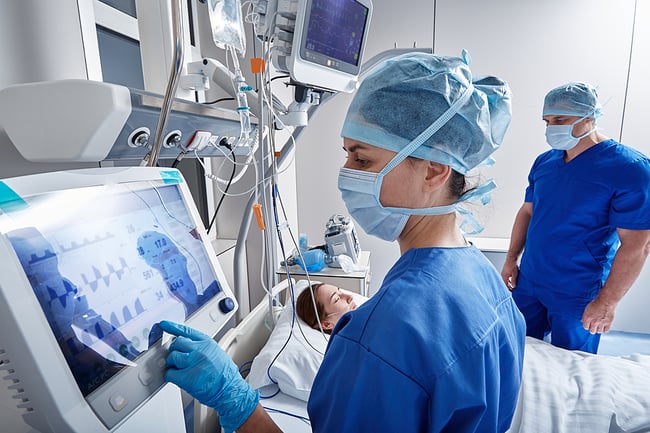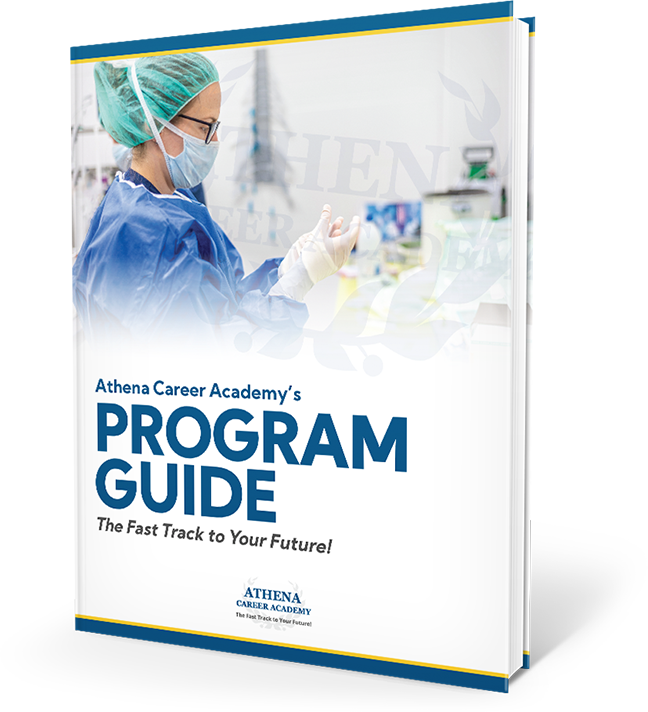Shaping the Future of Medical Assisting: What Lies Ahead
Posted On Sep 19, 2023

The future of medical assisting is expected to be influenced by a variety of factors, including advances in healthcare technology, changes in healthcare policies, evolving patient care models, and shifts in the healthcare landscape. For those who are considering becoming a medical assistant, there are some projections to consider.
Technology Integration
Technology changes rapidly, and every career is adapting to make the best use of the advancements available. Medical assistants are likely to continue playing an essential role in the integration of new technology. This may include managing electronic health records (EHRs) and working with mobile health apps to facilitate patient care.
Increased Demand
The demand for medical assistants is already high, and is projected to continue to grow as the population ages, leading to even greater healthcare needs. Medical assistants will be needed to support healthcare providers and ensure the efficient operation of healthcare facilities behind the scenes. If you are looking for a career with high demand and excellent job stability, medical assisting is a smart choice. Even in a challenging economy, there will always be a need for trained healthcare professionals.
Expanded Scope of Practice
Medical assistants have traditionally performed only basic medical tasks, but that may begin to change in the future. There are currently ongoing discussions related to the scope of practice for medical assistants, potentially allowing them to take on more tasks and responsibilities under the supervision of licensed healthcare providers. This could involve performing certain clinical tasks, such as administering medications or vaccinations. Although these tasks will vary by state, knowing that medical assistants could soon have more responsibilities is exciting to those interested in entering the healthcare field.
Specialization
Medical assistant training programs ensure that medical assistants can work in any healthcare facility, which has always been a great benefit. However, some medical assistants may choose to specialize in specific areas of healthcare, such as dermatology, cardiology, or pediatrics, developing knowledge and skills that are specific to these practices. Specialization can lead to enhanced career opportunities and higher earning potential.
Certification and Education
Becoming a Certified Medical Assistant (CMA) is likely to remain an important credential for career advancement and will produce greater opportunities in the future. Training and educational programs for medical assistants may evolve to include more comprehensive training in clinical skills, technology, and patient care that will allow all medical assistants completing a training program to be prepared for certification.
Telemedicine Support
Telemedicine had a huge surge during the pandemic, and many patients and providers have realized the value of the service and will continue to use telemedicine in the future, creating growth in the industry. As telemedicine continues to grow, medical assistants may begin to play a significant role in facilitating remote patient encounters, scheduling virtual appointments, and ensuring that patients have access to the necessary technology for Telehealth visits.
Patient-Centered Care
Treating the patient, not the condition, has been a recent development that is beneficial to both patients and healthcare providers. Patient-centered care models will continue to emphasize the importance of building strong patient-provider relationships. As this model continues to take a primary role in healthcare, medical assistants will help to create a positive patient experience by providing empathetic care and effective communication.
Interdisciplinary Teamwork
There are many facets of healthcare, and when teamwork isn’t a focus, patient care will not be ideal. Having a care team, rather than separate providers, is becoming the standard for high quality patient care. Collaboration among healthcare professionals, including medical assistants, nurses, physicians, and other allied healthcare workers is becoming increasingly important. Medical assistants may work in interdisciplinary teams to provide comprehensive patient care and facilitate communication with fellow healthcare workers.
Cultural Competency
The healthcare industry has put an increased focus on working with patients of all cultures, and medical assistants will be an important part of culturally sensitive care moving forward. Given the diverse patient populations in healthcare, medical assistants will need to continue developing cultural competency skills to provide sensitive care and improve patient experiences regardless of their ethnicity. Many medical assistant training programs are designing their curriculum to ensure that new medical assistants are prepared to offer the best possible care to all cultures.
Advancements in Training and Simulation
As technology advances, medical assistants will be expected to become familiar with and use medical technology. Medical assistant education will likely incorporate more advanced training methods, including simulation and virtual reality, to provide students with realistic clinical experiences during the training period. Doing so will prepare them for their work with patients in a real clinical setting.
Patient Education
The more informed and educated patients are about their medical conditions, the better the prognosis. When patients understand their healthcare needs, they are able to take better care of themselves and understand when they need a professional to step in. In the near future, medical assistants may take on a more active role in patient education, helping patients understand their diagnoses, treatment plans, and medications.
Predicting the future isn’t always possible, but watching healthcare trends can help those who are ready to enter the healthcare field be prepared for what the role of medical assisting will look like. To stay relevant and thrive, current medical assistants should consider continuing education, staying updated on industry trends, and adapting to the changing demands of healthcare. If you’re interested in learning more about our comprehensive medical assistant training program or to get more details on how to enroll, contact Athena Career Academy today!
Recent Posts
- How Accessibility to Faculty Enhances ECE Degree Program
- Early Childhood Education Courses Lead to Great Teaching Careers
- Insights for Effective Preschool Teaching
- Online vs. In-Person Medical Assistant Training: Which Is Right for You?
- Preschool Teachers Provide Hands-On Learning for Future Innovators
Categories
- Flexible Class Schedule
- Early Childhood Education
- Clinical Medical Assistant
- Medical Assistant
- Accredited
- Medical Assistant Program Toledo, OH.
- MA Program
- ECE
- preschool teacher
- CMA
- Administrative Medical Assistant
- Practical Nursing
- Nursing School
- Nursing
- Early Childhood Education Degree
- LPN to RN
- Certified Medical Assistant
- Early Childhood Educator
- Become a Teacher
- Nursing Career
- RN
- Childcare Teacher
- Nursing School Toledo
- Practical Nurses
- Childcare Director
- Nursing Education
- Registered Nurse
- LPN
- Toledo Ohio Nursing School
- Teaching Degree
- Become a Nurse in 12 Months
- Nursing Career Opportunities
- Nursing School Preparation
- Practical Nursing Jobs
- Medical Coding and Billing
- DayCare Teacher
- Nursing Salaries
- Nursing School Costs
- PN to RN
- Career Training
- Nursing School Tuition
- Nursing School Financial Aid
- Phlebotomist Technician
- Practical Nurse Salaries
- EKG Technician
- nurse burnout
- #nursesunite
- Insider
- Phlebotomy Technician Salary
- Uncategorized
- resume
Contact us
For News, Resources, and Conversations:
Get your FREE 2022 Athena Career Academy Program Guide
The best way to get to know Athena Career Academy is to see what we offer. Download our program guide to learn more. Take the fast track to your future today!
An exciting career can be yours in just one year!
Discover how Athena Career Academy can help you reach your medical career goals fast.
Accrediting Agencies
Athena Career Academy is accredited by the Commission of the Council on Occupational Education. The school is registered with the Ohio Board of Career Colleges and Schools; State of Ohio – School Registration Number – 10-09-1943T and operates under the authority of the Ohio Board of Nursing. Please contact the Student Operations Manager for more information.



